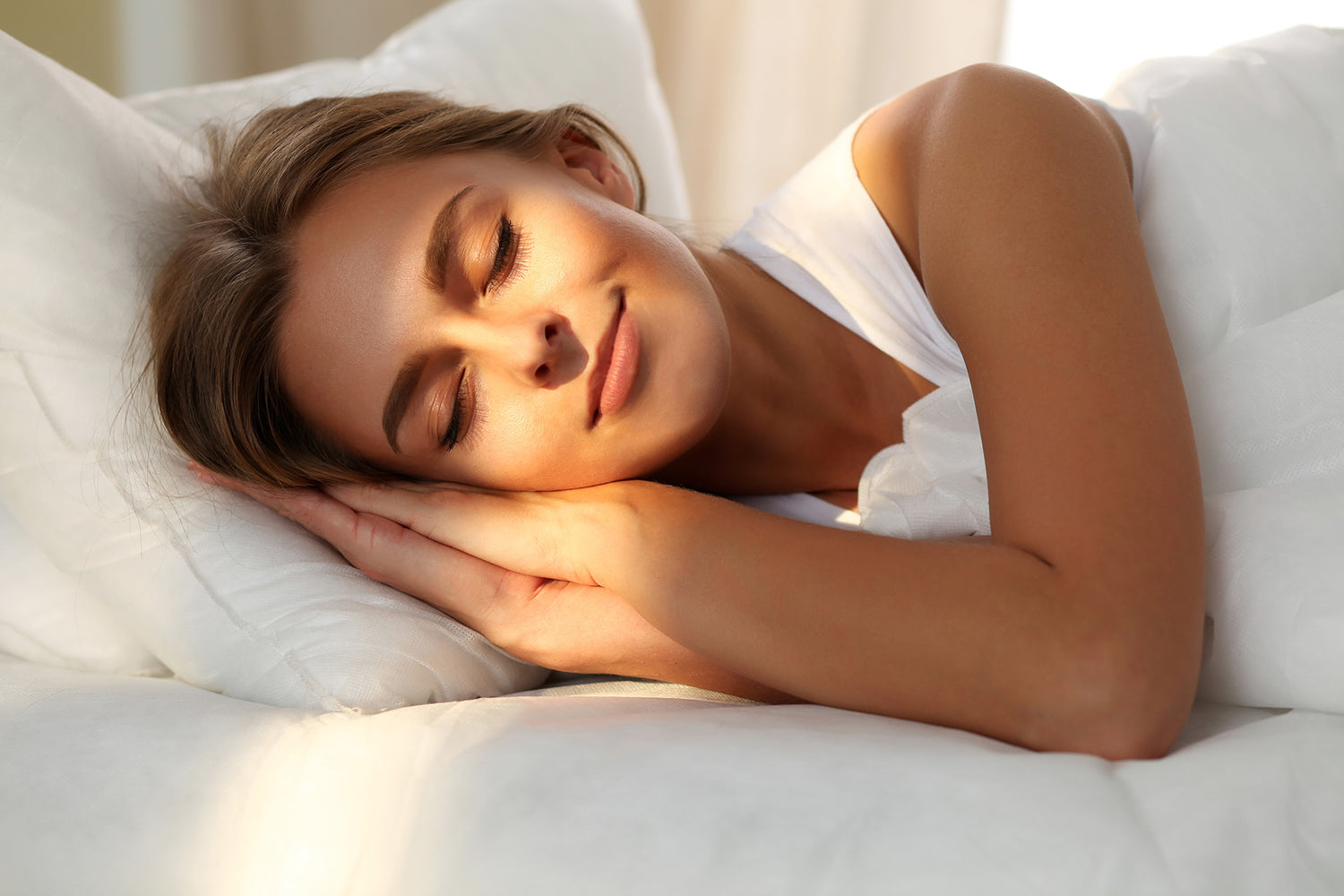12 Effects of Sleep Deprivation
Between busy work and social schedules, it can be difficult to get to sleep at a reasonable hour. While you might make a conscious effort to eat a balanced diet and exercise often, sleep can fall by the wayside — and it could actually derail your healthy lifestyle efforts. The National Sleep Foundation suggests adults over 18 years old get between 7 to 9 hours of sleep every night. If you can’t remember the last time you were in dreamland that long, this blog is for you.
When You Aren’t Sleeping Enough
Whether you spend all night tossing and turning or see it as something that’s not worth devoting more time to, you’re doing your body a disservice. While you’re sleeping, your body can heal, restore its chemical balance, and create new thought connections. When you don’t get enough sleep, both brain and body systems are negatively impacted and your quality of life can decrease drastically.
- 1. Weight Gain: The chemicals that tell your brain that you’re full can become unbalanced when you don’t get the proper amount of sleep. When this happens you’re more likely to overeat and consume more calories than your body needs.
- 2. High Blood Pressure: Sleeping less than 5 hours per night can increase your risk for high blood pressure.
- 3. Risk of Heart Disease: How do you mend a broken heart? Sleep! The body uses the time you’re asleep to heal and repair the heart and blood vessels, two processes you don’t want to interrupt. Additionally, poor sleep can increase chemicals that influence inflammation, which can eventually lead to heart disease.
- 4. Brain Fog: Missing as little as 1.5 hours can have an impact on your alertness. Concentration, creativity, and problem-solving skills can all be negatively impacted.
- 5. Decreased Sex Drive: If you’re not sleeping, you may not be doing much “sleeping” with anyone else either. Sleep deprivation can lower your libido; men in particular may experience a lower sex drive because less sleep can negatively affect testosterone levels.
- 6. Memory Problems: The new thought connections the brain forms during sleep are essential to help you process and recall information. Sleep deprivation can affect both short-term and long-term memory processes.
- 7. Moody Feelings: If you often feel happy one minute and angry the next, sleep deprivation could be to blame. Moodiness, fluctuating emotions, and anger issues can all occur when you haven’t had enough sleep. Eventually, some people develop mood disorders or find themselves more likely to quarrel with their friends, family, and coworkers.
- 8. Car Accidents: Each year, drowsy driving is to blame for thousands of crashes, injuries, and fatalities, according to the National Highway Traffic Safety Administration. Poor sleep can also affect your balance and coordination, making you more likely to fall or hurt yourself.
- 9. Risk for Diabetes: Sleeping directly impacts the body’s ability to release insulin. Those with sleep deprivation tend to have higher blood sugar levels, increasing their risk for type 2 diabetes.
- 10. Less Movement: When you’re tired, you’re far less likely to book that early spin class or go for a walk after work. Exercise would actually make you feel better – and probably help you fall asleep more easily! – and, by contrast, skipping physical activities can contribute to ongoing sleep difficulty.
- 11. Lowered Immune System: The body makes a protein that helps target infections and inflammation while we sleep. When we don’t sleep enough, the body isn’t able to produce normal immune responses.
- 12. Premature Aging: “You look tired” is probably one of the worst unintentional insults you can receive. Sleep deprivation can lead to wrinkles and dark undereye circles. Researchers have also found a link between sleep and cortisol, a stress hormone produced by the body. When cortisol is released, it can break down the collagen in your skin, further contributing to wrinkled, dry, and sagging skin.

How to Catch More Zs
Getting enough sleep can be easier said than done. Help guide your body to consistent, restful slumber by making these lifestyle changes:
- Establish a Schedule: Consistently wake up and go to bed at the same time – even on the weekend – and avoid taking naps during the day.
- Limit Caffeine: Drink your last caffeinated beverage before noon, or a few hours before you go to sleep at the latest.
- Silence Your Phone: Put away electronic devices and turn off the TV at least one hour before bedtime and wind down with a book or a warm bath instead.
- Don’t Watch the Clock: It can be tempting to sneak a peek at the clock if you wake up during the night, but don’t do it! Mentally calculating how many hours you have left and thinking about the next day’s obligations can send you into a spiral.
- Sleep Smarter: Smarter Sleep is formulated with Lactium®, a natural ingredient clinically proven to help gently manage your emotional state, and melatonin to help lull you to sleep naturally.

Waking Up on the Right Side of the Bed
Sleep is essential to supporting your nervous, immune, respiratory, digestive, cardiovascular, and endocrine systems. When your sleep schedule allows your body to properly complete its repair and restoration processes, you might realize that you’re getting even more done during the day and feeling better mentally, physically, and spiritually.
Sources:
- Cleveland Clinic. “Here’s What Happens When You Don’t Get Enough Sleep (and How Much You Really Need a Night).” 2022. https://health.clevelandclinic.org/happens-body-dont-get-enough-sleep/#:~:text=Some%20of%20the%20most%20serious,function%20and%20lower%20sex%20drive
- Cherney, Kristeen and Watson, Stephanie. “The Effects of Sleep Deprivation on Your Body.” 2021. Healthline. 2021. https://www.healthline.com/health/sleep-deprivation/effects-on-body#Causes-of-sleep-deprivation
- UC Health. “Creating Better Sleep Habits to Strengthen Immunity.” 2020. https://www.uchealth.com/en/media-room/covid-19/better-sleep-habits-to-strengthen-immunity
- https://www.ncbi.nlm.nih.gov/books/NBK19961/




